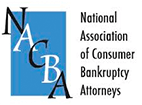Creditor Harassment

It is standard practice among some creditors and debt collection agencies to repeatedly contact and/or threaten individuals who are in debt to their clients. These kinds of harassing calls only add to the financial stress you are feeling. However, phone harassment by creditors is expressly forbidden by federal and New York state law.
If you are being subjected to creditor harassment, the White Plains bankruptcy law firm of Michael H. Schwartz, P.C. can help you fight back and put a stop to this abusive behavior. We are here to help consumers struggling with large amounts of debt chart a fresh course. Attorney Michael H. Schwartz has been helping people get their lives back on track throughout the Hudson Valley and the New York City metro area for more than 40 years.
We can help you resolve debt and other financial problems through bankruptcy, mortgage modification, foreclosure defense or other solutions. We can help you get creditors off your back! Contact us to learn about the steps we can take on your behalf.
Contents
What is the Fair Debt Collection Practices Act?
The Fair Debt Collection Practices Act (FDCPA) if a federal law that makes it illegal for debt collectors to use abusive, unfair or deceptive practices as they attempt to collect debts. Its restrictions apply to credit card debt, auto loans, medical bills, student loans, mortgages and other household debt. It does not cover business debts. It is found at 15 U.S.C. §§ 1692-1692p.
Among the prohibitions in the FDCPA, debt collectors cannot:
- Threaten you with violence or harm
- Use obscene or profane language
- Repeatedly telephone you to annoy you
- Phone you before 8 a.m. or after 9 p.m.
- Contact you at your place of employment after notification that this is unacceptable or prohibited
- Misrepresent the amount you owe
- Lie about being attorneys or government representatives
- Falsely claim you’ll be arrested or that other legal action will be taken against you
- Post your name and information on a public list identifying you as a debtor
- Try to collect interest, fees or other charges on top of the amount you owe, unless the original contract or your state law allows it
- Take or threaten to take your property unless it can be done legally
- Contact you directly after you advise them that you are represented by a lawyer.
In New York, under 23 NYCRR 1, as adopted by the N.Y. State Department of Financial Services, third-party debt collectors collecting on behalf of original creditors must disclose your protections under the FDCPA within 5 days of first contacting you.
Under New York law, a debt collection agency must inform you that certain types of income cannot be seized to pay your debt. These include:
- Social Security payments, including retirement benefits, Social Security Disability (SSD) and Supplemental Security Income (SSI)
- Veterans’ benefits
- Public or private pensions
- Public assistance
- Alimony or child support payments
- Unemployment benefits
- Workers’ compensation benefits
- Federal student loans or grants, or federal work study payments
- Ninety percent of your wages or salary earned in the previous 60 days.
What Legal Action Can I Take If a Creditor Violates the FDCPA?
Creditors and debt collectors who violate the FDCPA may first be reported to state and federal agencies, including:
- The New York State Attorney General’s Office – Scroll down to Finance, Investment, and Lending > Debt collection, credit reports, and financial matters.
- The Federal Trade Commission.
You may also sue the debt collector in a state or federal court for your expenses linked to the harassment, such as medical bills for psychological counseling linked to the harassment, and lost wages. If you can’t prove damages are warranted, you may still be awarded up to $1,000, plus reimbursement for attorney’s fees and court costs. You have one year from the date the FDCPA was violated to file such a creditor harassment lawsuit.
A group of people harassed by the same creditor or collection agency might sue as part of a class action lawsuit and be eligible to recover up to $500,000 or 1% of the collector’s net worth, whichever amount is lower.
Note that neither a successful lawsuit nor a complaint investigated by state or federal authorities relieves you of your obligation to pay the debt.
Let Us Help You Put an End to Creditor Harassment
As soon as you engage the services of Michael H. Schwartz, P.C., in White Plains, N.Y., we can draft correspondence to each of your creditors and/or collection agencies advising them that you are legally represented by our firm. This makes it a violation of federal law to continue to harass you or to contact you in any way.
Our law firm can help you with your financial problems. There are multiple approaches to seeking debt relief. Personal bankruptcy is a legal option that anyone drowning in debt should consider.
Under Chapter 7 bankruptcy, you may be able to get relief from unmanageable medical bills, credit card bills, utility bills, unpaid rent and other personal debt. If you have a steady income, a Chapter 13 bankruptcy would allow you to develop a debt repayment plan to pay off your debts over an extended time period. Filing for bankruptcy protection requires creditors to immediately stop all collection efforts pending notice from the Bankruptcy Court.
To get headed in the right direction, it is up to you to make the first phone call.
Contact Our White Plains, N.Y., Creditor Harassment Attorneys
If you are being hassled by creditors or debt collectors, find out about your legal rights to respond to creditor harassment. Call Michael H. Schwartz, P.C. at 855-637-1359 today or fill out our online contact form to arrange a initial consultation with our White Plains bankruptcy lawyer.

Michael H. Schwartz is the largest filer of bankruptcy cases for people living in Westchester and Rockland counties in New York. A graduate of New York Law School, Michael has been licensed to practice in New York State courts since 1983. He is also licensed to practice in the U.S. Bankruptcy and District Courts for the Southern, Eastern and Northern Districts of New York and the District of New Jersey as well as the Second Circuit U.S. Court of Appeals. He is a graduate of Max Gardner’s Bankruptcy and Veterans’ Boot Camps. Several media outlets have reported on his cases or sought his insights, including The New York Times.





